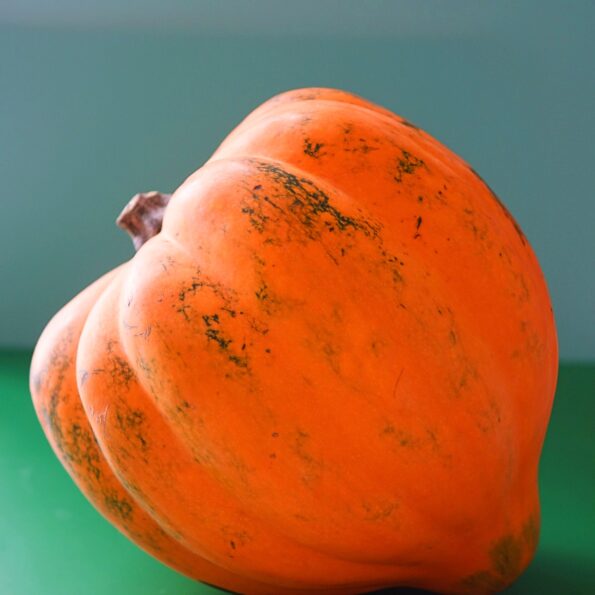
Pumpkin stands out as a nutritional behemoth, brimming with vital nutrients essential for optimal health. According to the United States Department of Agriculture (USDA), a detailed nutritional profile for a one-cup serving of cooked, mashed pumpkin includes:
- Calories: 49
- Fiber: 2.7 grams
- Vitamin A: 245% of the Daily Value (DV)
- Vitamin C: 19% of the DV
- Potassium: 394 milligrams
- Vitamin E: 10% of the DV
- Iron: 7% of the DV
- Vitamin B6: 8% of the DV
- Magnesium: 8% of the DV
Pumpkin is particularly celebrated for its extraordinary vitamin A content, essential for robust vision and immune health.
Antioxidant Haven
Rich in antioxidants like beta-carotene, which imparts the vibrant orange hue to pumpkins, this fruit plays a pivotal role in neutralizing oxidative stress and lowering chronic disease risks. Studies, such as those cited by the Journal of Research in Medical Sciences, underscore the health benefits of antioxidant-rich foods for overall wellness.
Vision and Eye Health
Pumpkin’s beta-carotene is not only an antioxidant but also converts to vitamin A in the body, a nutrient vital for eye health. The American Optometric Association underscores the significance of vitamin A in averting night blindness and age-related macular deterioration.
Heart Health and Metabolism
Pumpkin boasts a commendable amount of vitamin K, enhancing metabolism and aiding in the elimination of toxins and excess weight, making it a staple in various diets. Furthermore, the consumption of pumpkin supports long-term eye health, with a mere half-cup of pumpkin seeds satisfying the daily vitamin A requirement for optimal vision.
Notably, pumpkins are hypoallergenic, posing minimal risk for allergic reactions or adverse effects, allowing widespread consumption.
Immune Boosting and Weight Management
With its rich vitamin C content, pumpkin fortifies the immune system, as highlighted by the National Institutes of Health (NIH). Its low-calorie yet fiber-rich composition also aids in weight management by promoting satiety, with research in Nutrition Research linking dietary fiber to reduced body weight and fat.
Skin Vitality
The nutrients in pumpkin, including vitamins and antioxidants, are beneficial for skin health, encouraging collagen production for a youthful glow. The skincare industry is increasingly incorporating pumpkin-based products for their topical benefits.
Conclusion
Pumpkin is undeniably a superfood with diverse health benefits. However, moderation and balanced diet integration are key. While pumpkin enriches your meals, it should complement, not replace, other fruits and vegetables. Nutritional needs are personal; for tailored dietary advice and to maximize pumpkin’s benefits in your diet, consulting with a registered dietitian or nutritionist is advised.
In essence, pumpkin is a nutritional jewel with myriad benefits, yet it is merely one component of a healthy dietary regimen. Balanced nutrition and professional guidance are paramount for achieving optimal health and wellness.
References:
- USDA FoodData Central: For comprehensive pumpkin nutritional content. USDA FoodData Central – Pumpkin
- Journal of Research in Medical Sciences: Discusses antioxidants in pumpkin. Journal of Research in Medical Sciences – Antioxidants
- American Optometric Association: Emphasizes pumpkin’s vitamin A for eye health. American Optometric Association – Vitamin A
- NIH – Vitamin C and Immune Function: Explores pumpkin’s vitamin C role in immunity. NIH – Vitamin C and Immune Function
- Nutrition Research: Links pumpkin’s dietary fiber with weight management benefits. Nutrition Research – Dietary Fiber
Note: This content is for informational purposes only and is not a substitute for professional medical advice.
Incredible benefits of pumpkin: everything you wanted to know about your favorite symbol of Autumn
Pumpkin, often associated with cozy fall traditions and Halloween decorations, is more than a seasonal symbol. This versatile fruit offers a wide range of health benefits that can be enjoyed year-round. While we explore the advantages of incorporating pumpkin into your diet, it’s essential to remember that no single food can guarantee miraculous results. Professional nutrition consultation is always recommended for personalized dietary guidance. In this article, we’ll delve into the numerous benefits of pumpkin based on reputable sources.
